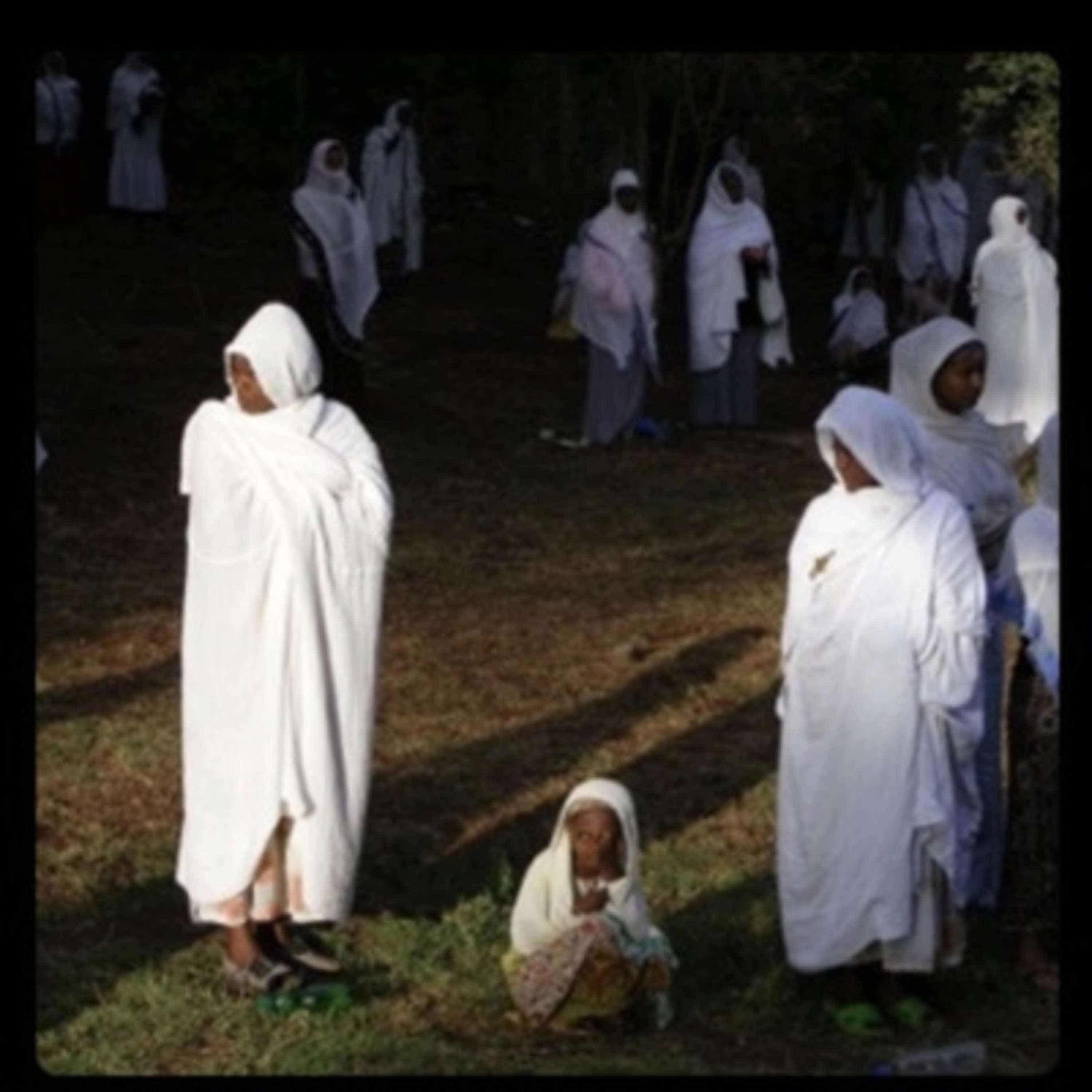Amharic of the Day
Description
የእግዚአብሔር : ልጆች : ተብለን : ልንጠራ : አብ : እንዴት : ያለውን : ፍቅር : እንደ : ሰጠን : እዩ : እንዲሁም : ነን። ስለዚህ : ምክንያት : ዓለም : እርሱን : ስላላወቀው : እኛን : አያውቀንም።
ye’igzeeabhér lijoch teblen linTera ab indét yalewn fqr inde seTen iyu indeehum nen:: silezeeh mknyat alem irsun slalaweqew iñan ayawqenm::
See what sort of love the Father has given to us: that we should be called children of God, and we are! Because of this the world does not know us: because it did not know him.
(1 John 3:1 LEB)
Taking the biblical verse above as a starting point, this modern amharic spiritual song was made. The chorus:
እንድንጠራ : ልጆቹ : ተብለን : አብ : አንድያ : ልጁን : ጨክኖ : ሰጠን : የሚጠብቀን : መልካሙ : እረኛ : ከቃል : በላይ : ነው : እግዚአብሔር : ለኛ
indnTera lijochu teblen ab andya lijun CHekno seTen ye’meeTebqen melkamu ireña ke’qal belay new igzeeabhér leña
so that we could be called his children, God the father decisively gave us his only son, our good shepherd, the Lord who protects us, is above words, for us.
If you are learning Amharic, or want to help someone learn Amharic, have them hear the chorus a few times, then have them sing-along, and eventually they should be able to sing it on their own. Break down the Amharic transliteration into the Latin alphabet and try to match their understanding with each word to see what it is doing. The grammar is different, and so the words will be arranged in a different manner, not 1-to-1.
This cover was sung by the incomparable Phd. candidate Dcn. meharee ze'melak werqu (professionally Mehari Worku), one of my mentors and big brothers (no not that Big Brother) in Christ. The event was the last, or penultimate?, North American gathering of Sunday School (Bible and choir) bondservants under the auspices of the EOTC holy synod in exile, prior to reunification. It’s where him and I first met in the flesh. Before that, to me, he was just a mysterious commenter on the first iteration of my Tewahido Bible Study, hiding behind a strange political martyr avi on Facebook.
I had an Ethiopian catechumen of the EOTC (I believe from Protestantism) recently reach out about his appearances in my projects. And so I might as well share with you all as well. meharee is prolific. He studies the Horn of Africa and the Near East in: Ge’ez, Amharic, Hebrew, Syriac, Arabic, Coptic, Greek, German, English, and French. And he dabbles in Tigriña and Afan Oromo.
In POAAS 63 he tells us about Aba George of gasCHA and the infamous Council of Chalcedon (which Fr. Paul Nadim Tarazi calls, “the saddest moment in Church History”, The Rise of Scripture).
In POAAS 76, he tells us about the bnay qyama "Children of the Covenant" (or resurrection). And about Egyptian, Roman, and Syrian celibacy movements that sow the seeds which later formalize into monastic movements.
In POAAS 84, he eulogizes the late great ge’ez professor par excellence gétachew haylé.
He has a recently published fresh translation of Ethiopian philosophy: The Hatata Inquiries: Two Texts of Seventeenth-Century African Philosophy from Ethiopia about Reason, the Creator, and Our Ethical Responsibilities.
He is the majority contributor to the translations of the Miracles of Mary Project at Princeton.
An article in The Alexandria School Journal: An Orthodox Academic Journal.
An article here on Gregory the Great and his Pastoral Rule.
An article here on monasticism (discussed in POAAS 76), Before Egypt and Rome there was Syria.
An article here on human existence.
An Amharic audio piece introducing St. Augustine of Hippo.
An Amharic audio series translating the interpretation of the prayer of faith (Nicene-Constantinopolitan creed) by St. Augustine. Part 1, Part 2, and Part 3.
A forthcoming translation of the Ge’ez (Classical Et
More Episodes
Raymond Silverman, Professor Emeritus of History of Art, Afroamerican, and African Studies at University of Michigan, joins me on the latest Philosophy of Art and Science to discuss the Afroasiatic art of Aksum.
Aksum Review of Books is a reader-supported publication. Free subscribers help...
Published 11/10/24
This is an audio recording of my homily from the throne of the Ethiopian Orthodox Tewahdo Church’s bishop of Washington, Oregon, and Idaho. I delivered this homily during communion, and the cameraman rightly took the camera away from the mystery of qwrban (qurban; sacrifice; communion), whilst...
Published 10/31/24
Published 10/31/24


